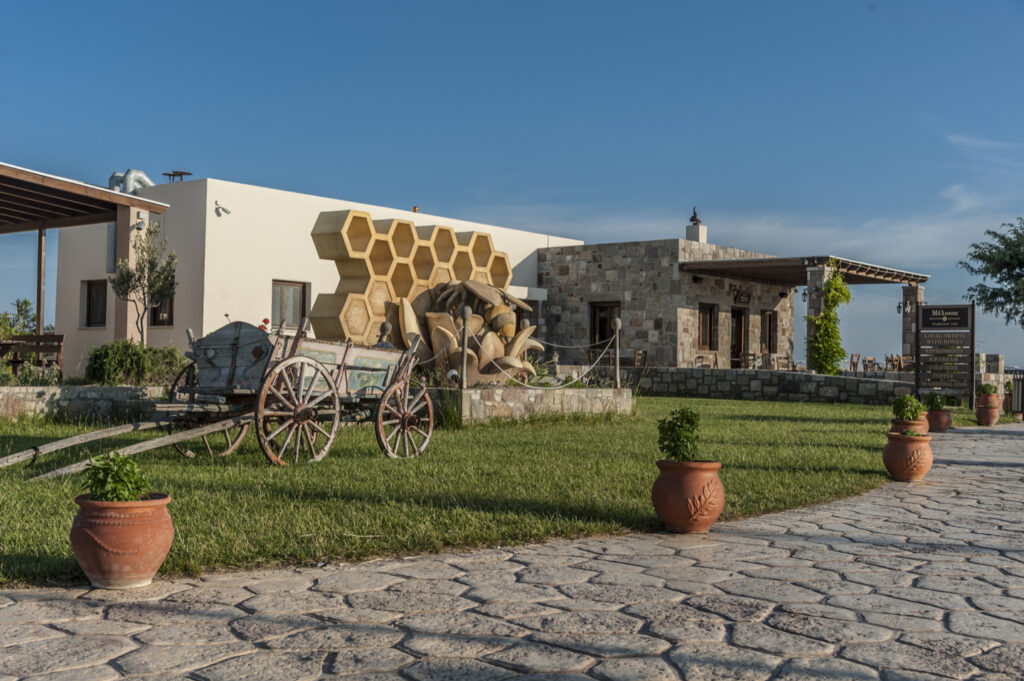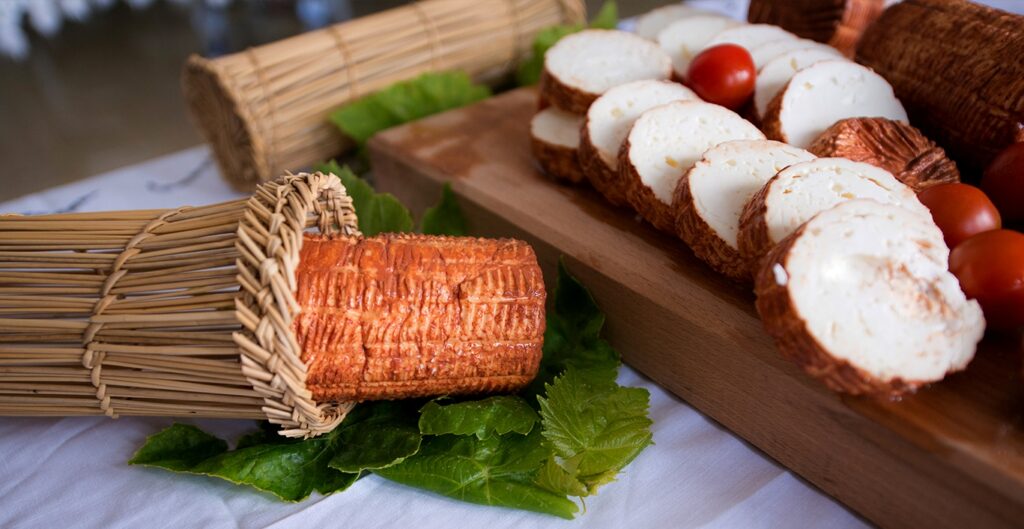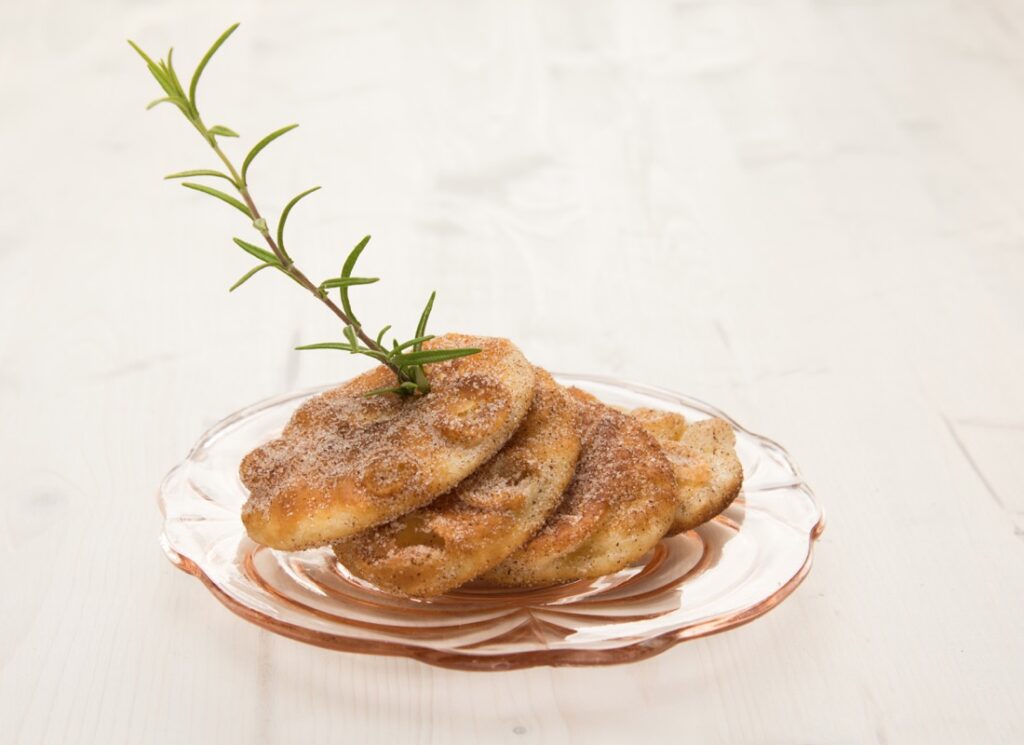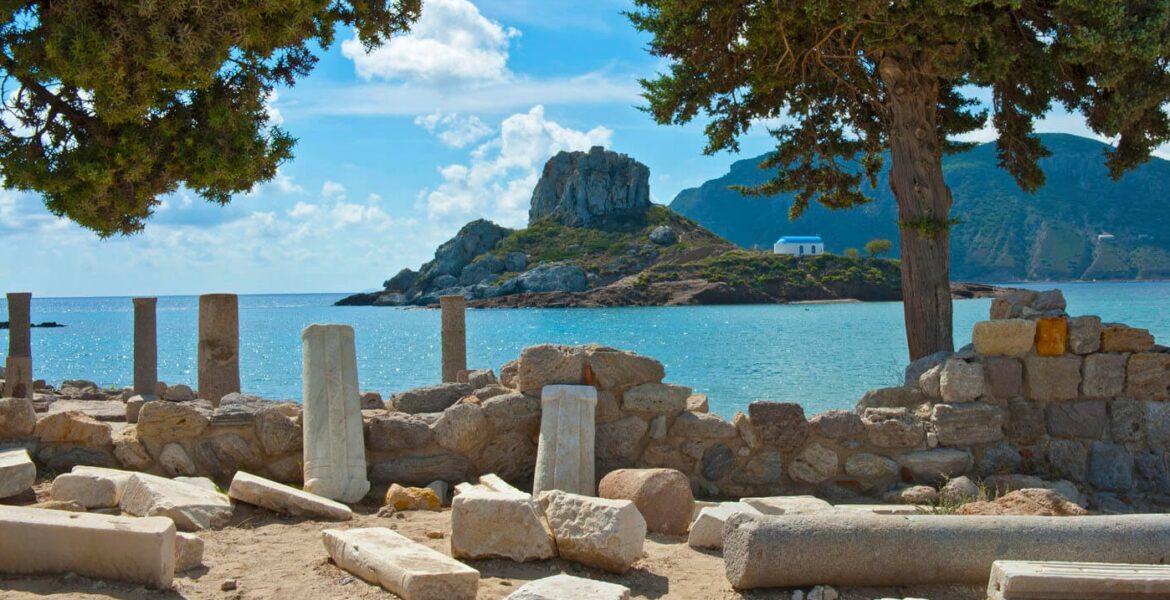Kos's rich and fertile soil is perfect for fresh vegetables and provides the ideal foundation for thriving olive groves and vineyards. The island’s livestock farming is advanced, with a diverse array of animals, including cattle, sheep, goats, pigs, and chickens, and the production of delicious cheeses. With a long coastline, fishing is popular on the island, resulting in a notable selection of freshly caught fish and seafood.
Don’t miss the Antimachia thyme honey for an authentic taste of Kos. It is renowned for its aromatic flavour, which can be savoured at the honey festival in Antimachia alongside a variety of locally made sweets. Visitors can explore the bee farms up close for an even deeper dive into the island’s honey production.

The most characteristic cheese of Kos is the ‘cheese of Posa‘ or “krasotiri” (PDO), which is cylindrical in shape with grooves in its crust. It is slightly salty and made from goat’s or sheep’s milk, with a buttery texture and a slightly sharp aftertaste. It is matured in red wine deposits (“posa”) for a month, which gives it a reddish colour on the outside while the inside remains white.
Other cheeses produced in the island’s dairies are kefalotyri, graviera and mizithra.

From hearty meat dishes like pork with bulgur or beef with chickpeas baked to perfection in the oven to delectable seafood specialities like savoury octopus meatballs and stuffed zucchini flowers, there’s something to tantalise your tastebuds.
Looking for a taste of tradition? Don’t miss the mouth-watering lamb stuffed with rice, liver, raisins, and aromatic greens, known as “pichti”, or the “Katina”, a pie made with the local Posa cheese, onions, and eggs, that’s a traditional treat prepared on August 15th.
For those who prefer lighter fare, the ‘evreiko’, a delicious omelette with tomato and onions, is a must-try. Pasta lovers will enjoy options like pittardia, macaroons, and handmade pasta with grated local mizithra cheese.
Among the desserts, a wonderful tomato spoon sweet and the peculiar open “lambropites” (cheese pies) with myzithra cheese sprinkled with ground pepper and cinnamon stand out.

Also try the “sarsoumades” (a fried dessert flavoured with honey) and “mairia” (a cream flavoured with flower water, walnuts and cinnamon) and “marmarites” (pancakes made on Epiphany and served with sugar or honey), which used to be prepared on special heated marble, (hence their name, as “marmaro” means marble).

Popular refreshments include the sweet cinnamon soda (available bottled) and “soumada” made with bitter almonds.
Olive groves dot the island of Kos, and the virgin olive oil produced here is second to none. You won’t want to miss the green crushed olives or the “hamades,” an irresistible variety of salted, very ripe olives served immediately.

The vineyard of Kos is equally remarkable, with a history of grape cultivation that spans thousands of years.
The famous ‘Kos wine’ was once renowned throughout the known world, and today, the local wineries continue to produce exceptional wines that are a true delight for the senses. With varieties like Syrah, Assyrtiko, Kydonitsa, Grenache Rouge, Malagouzia, Chardonnay, Merlot, and Cabernet Sauvignon, there’s a wine to suit every palate.
If you’re a wine enthusiast, be sure to visit the two wineries open to the public and taste the unique flavours of PGI Kos, the local Kos wine that’s been produced here since 2008.

With such an abundance of incredible produce, Kos is a true haven for foodies and wine lovers alike, offering a truly unforgettable culinary experience that’s not to be missed.
The article first appeared in Travel.
READ MORE: Aegina: The favourite island for Athenians.

